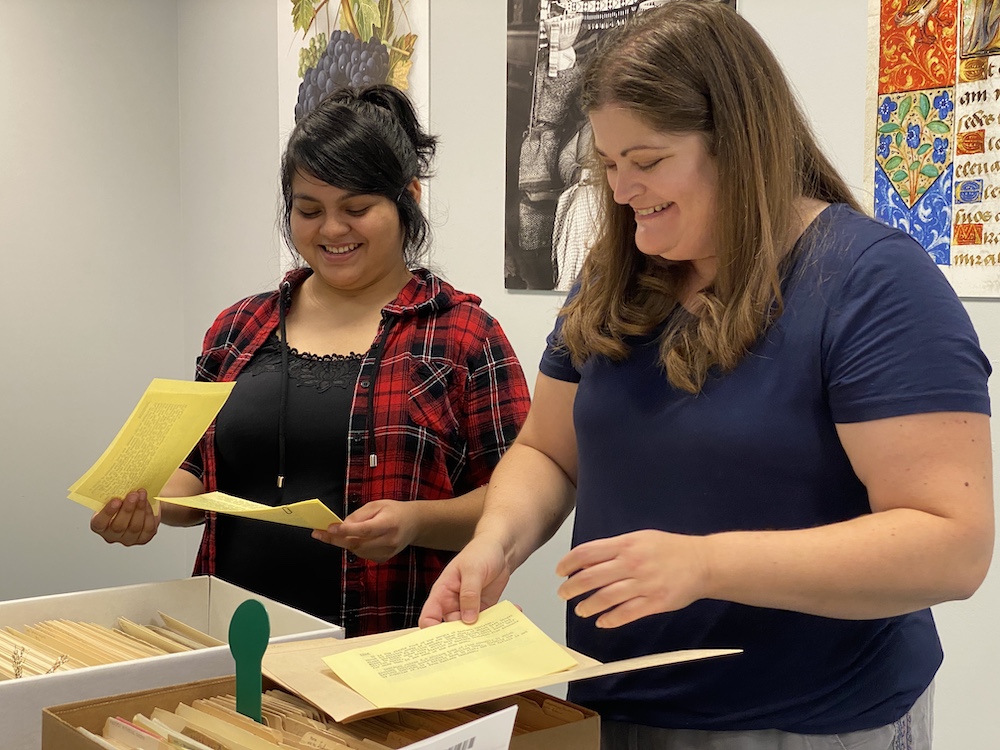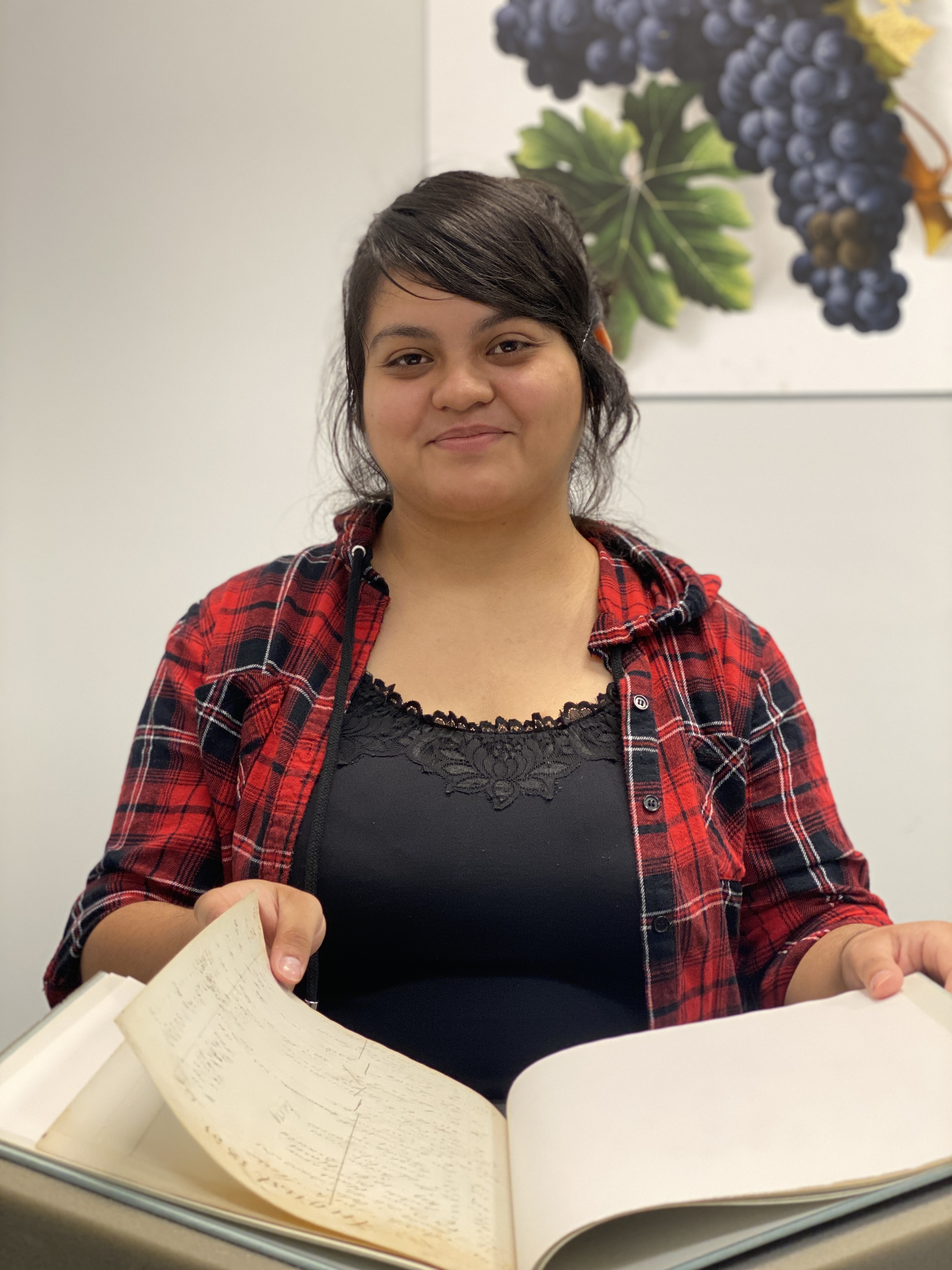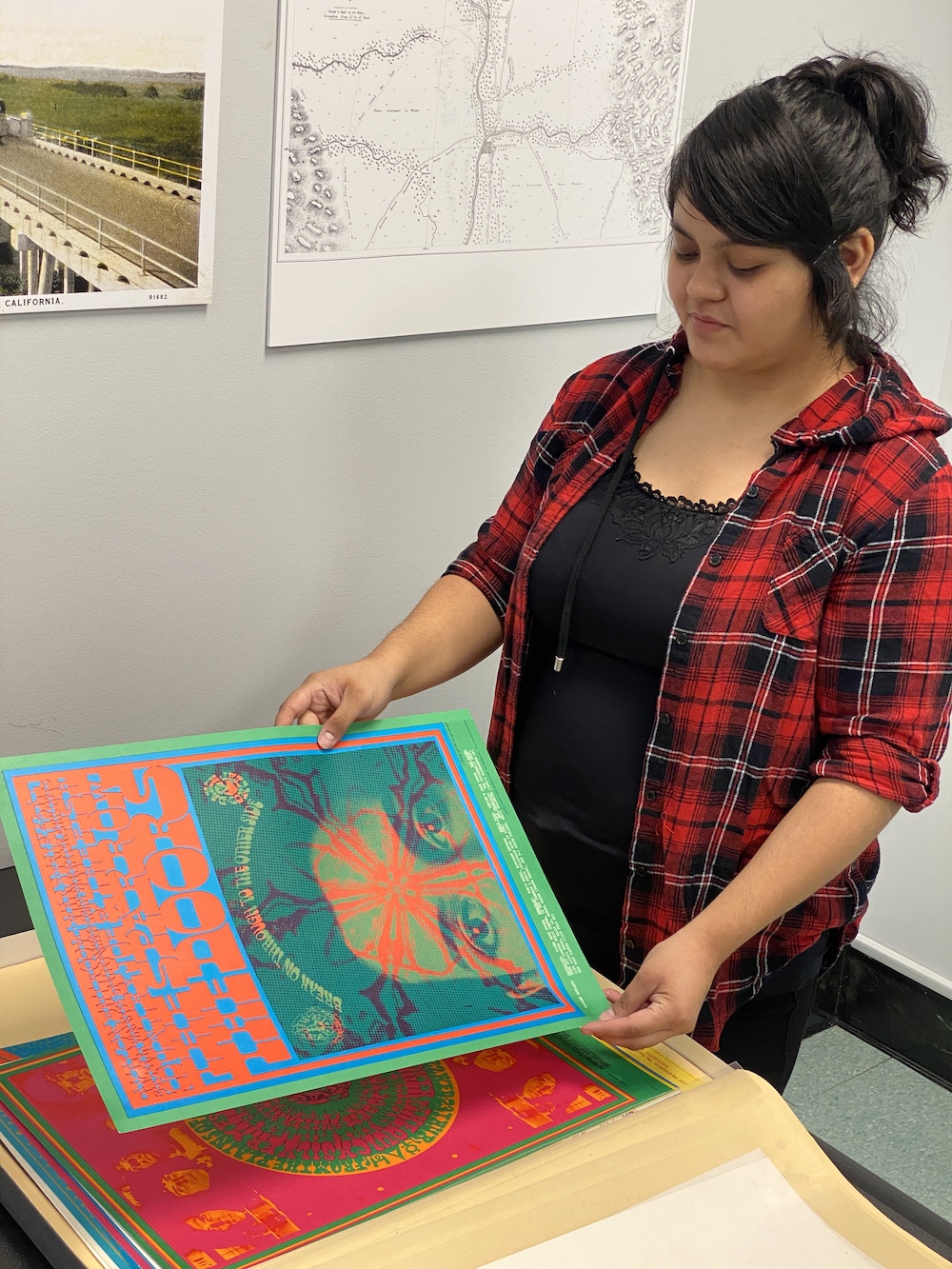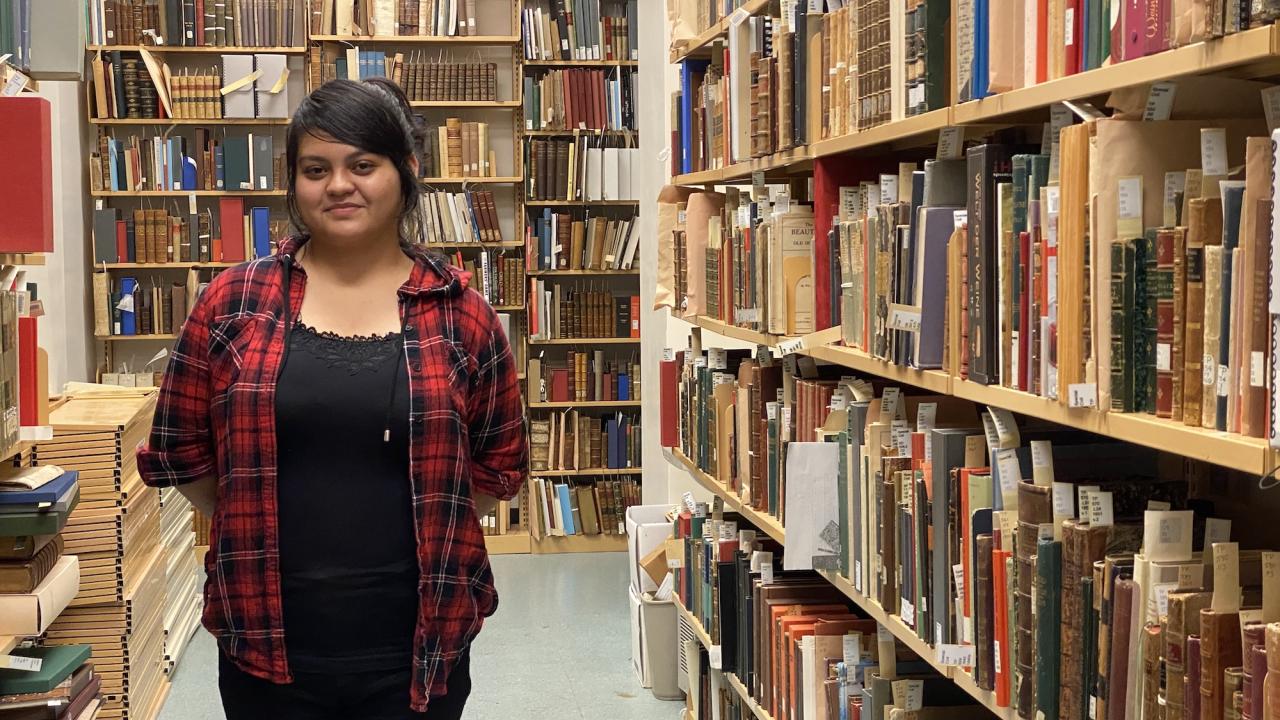One of the most exciting parts of working in a library is the opportunity to engage with early-career librarians and archivists, whose perspectives on information integrity, access, and curation keep the field vibrant and relevant. Several UC Davis undergraduate students help Archives and Special Collections operate by assisting with special projects, fulfilling reproduction requests, and supporting the needs of the reading room. Vanessa Cardona-Ocegueda has worked in the department since the summer before her sophomore year. A recent graduate who majored in the English and History, she is preparing to embark on a career in libraries. We interviewed her about her time in the archives and her future plans.
How long have you been working in Archives and Special Collections? What initially prompted you to apply for the student assistant position?

I have worked in Archives and Special Collections for about three years now, and it was a significant part of my undergraduate experience. I was hired in the summer of 2018, between my freshman and sophomore years. As a scholar of literature and history, everything I did in Archives and Special Collections combined perfectly with my personal and academic interests, and the connections I made through my work provided me with invaluable skills.
I remember that I came across the student assistant job posting by chance. I was already working a student job on campus at Scrubs Cafe, but I was constantly searching for a job that would be more fulfilling. I volunteered at my local public library when I turned 16, and my dedication to my volunteer work prompted my supervisor to recommend me for AYE (Archdiocesan Youth Employment Services), a program that would allow me to work for the library as the equivalent of a paid intern. I was still underage, so I was only able to work so many hours, but the experience made me realize that I genuinely enjoyed working in a library environment. So, I knew then that I wanted to use my education to help me realize my goal of working in a library.
I had a habit of checking library websites for any openings and that’s how I found the student assistant position. I immediately reviewed my materials to apply. I felt that I had enough experience to at least qualify for an interview and felt that my enthusiasm for working in a library would help me the rest of the way. Luckily the interview went really well and I got the job.
What are some of the projects you’ve worked on, and the responsibilities you’ve had, during your time in Archives and Special Collections that stand out for you?

A project that I worked on that stuck with me was called “Missing Books Prior to Aeon.” The department uses a software called Aeon to check out and track the movement of rare books, manuscripts, and ephemera. Before Aeon, the department relied on paper cards to record this information. I had a little box full of cards that gave the information of the patron and the date they requested to look at a specific item (in this case, all books from our collections).
Most of the books in this list were in the process of being transferred to a different department, either for conservation work, digitization, or some other reason. There was no indication on the cards whether something was back in our possession, so part of my responsibility was to try and track them down to the best of my ability. I spent some time in our stacks searching for these books and also used some of our online platforms to try and track the books through our internal records. It was like a scavenger hunt or a puzzle.
I think that is one of the things I like most about my job in Archives and Special Collections: Every day there is a new puzzle to solve; there is a new search for information.
What are some of the more interesting things you’ve come across during your time in Archives and Special Collections?
I have come across numerous items and collections that I think are super cool. One of the most fascinating older items in Archives and Special Collections is our Sumerian Clay Tablet, which is dated to around 1974 B.C., because it is an item that I wouldn’t have expected to find in Davis. (Officially the title is Administrative text dealing with the hiring of persons to perform agricultural work on the fields belonging to the temple of Shara, chief god of Umma). It is a text inscribed in cuneiform that connects us, here in California during the 21st century, to a completely different region and time period.

A collection that I find interesting is the Counter-Culture Posters Collection. This collection caught my eye because it contains such a wide variety of artistic and expressive posters. I like that it documents a period of time in local history when people used their artistic skills to capture and display a spirit of rebellion. The collection is timeless in that it reflects something that is present in every generation: a need to challenge mainstream society and values that do not work for us and for our future.
Finally, I recently scanned pages from the Harold Paul Olmo Papers for a patron, and in one of the folders I found a ton of material that detailed some of the events surrounding Cesar Chavez and the California Farmworkers’ Movement of the 1970s.
I found annual reports that had labor statistics for migrant workers and fliers that encouraged people to shop elsewhere for fruit where the workers were allowed to unionize. This was interesting, because from what I had read about the Olmo papers, as described in the collection’s finding aid, the papers mostly focused on Dr. Olmo’s work as a professor of Viticulture and Enology at UC Davis. I was not expecting to find so many primary sources for an important milestone in Chicanx history within this collection.
You’ve recently finished your undergraduate studies and are finishing the term for your student position. What’s next for you?
In the immediate future, I am searching for a job in a library or cultural institution. I am currently employed off-campus but I hope to find something that will utilize my skills and engage my undergraduate education a bit more. I applied to a few library assistant positions recently in the surrounding areas and I am expecting to hear back from them very soon.
In the long term, I know I want to go back to school and complete a master’s degree in library science. I am a first-generation student, so navigating graduate school is definitely going to be a challenge, but I know I am dedicated to this field enough that I believe it will be worth it. Some of my top contenders for MLIS programs are San Jose State, UCLA, and the University of British Columbia. Wherever I go I am sure to make the most of it.
This story was originally published on the UC Davis Library website.
Vanessa Cardona-Ocegueda is a recent UC Davis graduate who majored in English and History with a minor in Chicano Studies. She is currently a student assistant in Archives and Special Collections, transitioning to the next phase of her path in archival and library studies.
